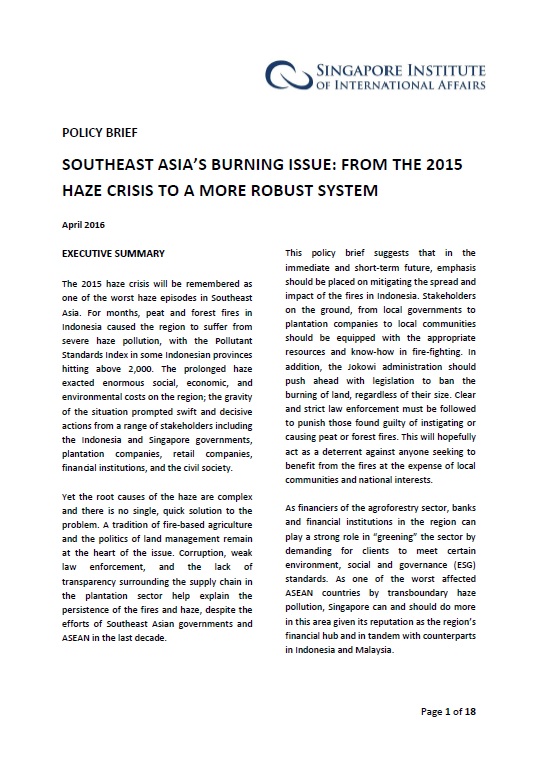Date :15 Apr 2016
The 2015 haze crisis will be remembered as one of the worst haze episodes in Southeast Asia. For months, peat and forest fires in Indonesia caused the region to suffer from severe haze pollution, with the Pollutant Standards Index in some Indonesian provinces hitting above 2,000. The prolonged haze exacted enormous social, economic, and environmental costs on the region; the gravity of the situation prompted swift and decisive actions from a range of stakeholders including the Indonesia and Singapore governments, plantation companies, retail companies, financial institutions, and the civil society. Yet the root causes of the haze are complex and there is no single, quick solution to the problem. A tradition of fire-based agriculture and the politics of land management remain at the heart of the issue. Corruption, weak law enforcement, and the lack of transparency surrounding the supply chain in the plantation sector help explain the persistence of the fires and haze, despite the efforts of Southeast Asian governments and ASEAN in the last decade.
This policy brief, released in conjunction with our 3rd Singapore Dialogue on Sustainable World Resources on 15 April 2016, suggests that in the immediate and short-term future, emphasis should be placed on mitigating the spread and impact of the fires in Indonesia. Stakeholders on the ground, from local governments to plantation companies to local communities should be equipped with the appropriate resources and know-how in fire-fighting. In addition, the Jokowi administration should push ahead with legislation to ban the burning of land, regardless of their size. Clear and strict law enforcement must be followed to punish those found guilty of instigating or causing peat or forest fires. This will hopefully act as a deterrent against anyone seeking to benefit from the fires at the expense of local communities and national interests.
The report can be downloaded from this link.




